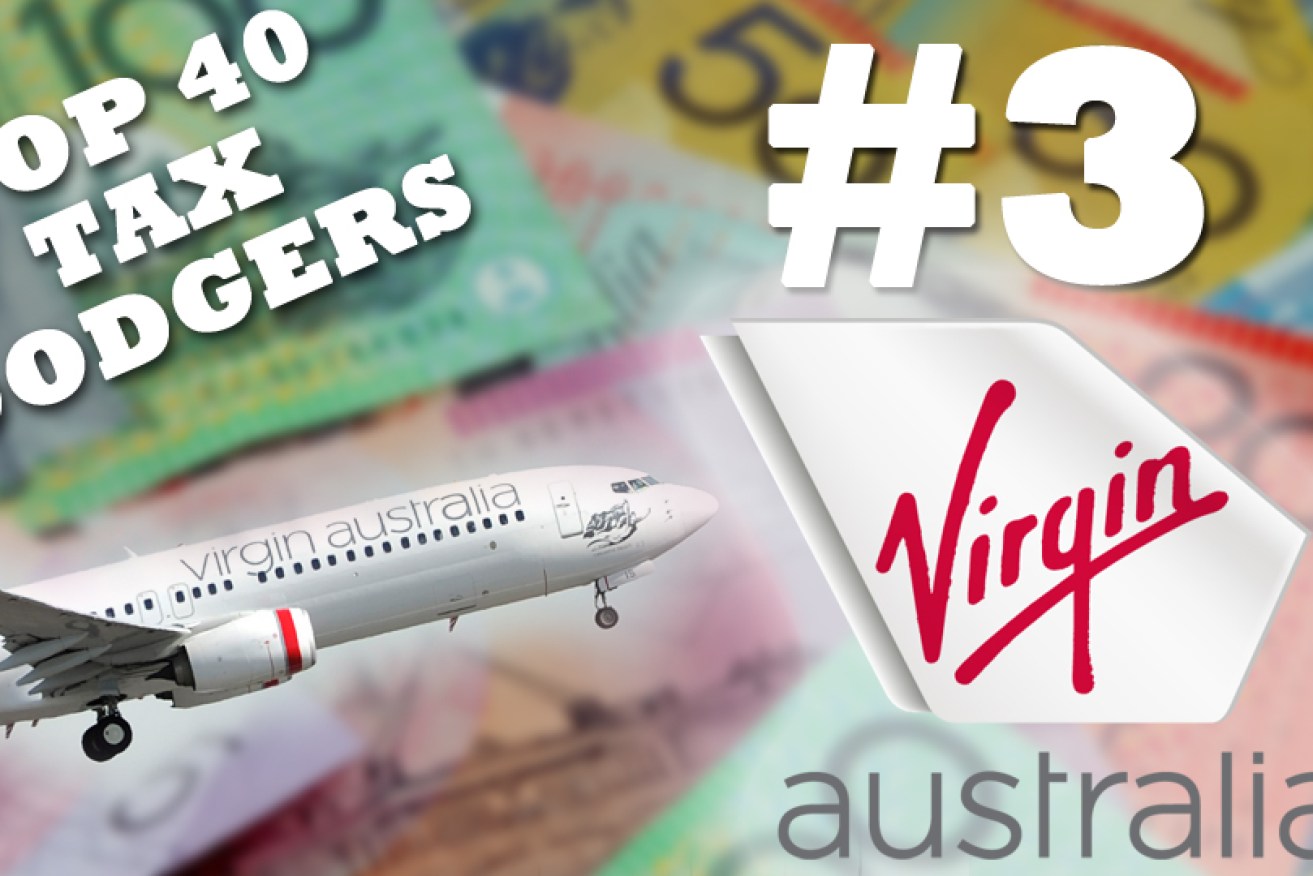Australia’s top-10 tax dodgers: Virgin Australia


Virgin Australia's flighty approach to taxes has landed it among the top three tax dodgers in the country.
The New Daily and Michael West count down the 10 biggest corporate tax dodgers in Australia. Return on Tuesday when we reveal the nation’s second-biggest tax avoider.
Virgin founder Richard Branson actually resides in a tax haven. He has his own island, Necker Island, in the notorious tax secrecy archipelago, the British Virgin Islands.
You don’t get more tax-haveny than that. Some may quibble that rival airline Qantas has dodged far more tax. Indeed, the national carrier has paid no tax on an humongous $62 billion in total income over the four years of available Tax Office transparency data.
Virgin, with its $18 billion and zero tax payable, is a midget by comparison.
Yet, as explained in the methodology, these Top-40 rankings are not just based on sheer magnitude of total income, but also on how much taxable income the company managed to wipe out.
Qantas still produced $336 million of taxable income (on which it still paid no tax). And if you take last year’s numbers – as 2018 is not included in the lagging Tax Office transparency data – Qantas racked up another $18 billion in total income and showed tax paid of a measly $3 million (paid, not here, but to a foreign government to boot).
Qantas, therefore, is eminently worthy of note. Despite its billions in bona fide tax losses, there is evidence of chipmunkery on the tax front.
That said, because of the way the numbers fall, and the need to stick closely to the Tax Office data in formulating a credible rankings system, this is Virgin’s story.
And Virgin’s story is that the board of the airline, its executives and those who pull the strings from overseas think that paying income tax in Australia is optional, not compulsory.
Virgin and its auditors from KPMG don’t even bother to list tax as an item in their cashflow statement. Income tax is apparently not their thing.
There are $6 billion in cash receipts from customers last year, and finance costs and so forth. But no tax. They do deign to include a “tax expense” line in their income statement, but this number is forward-looking, an accounting estimate and, in Virgin’s case, quite possibly a fantasy. We shall see how this fantastical tax-expense number is borne out in real life this time next year.
Moving to the notes in the latest Virgin accounts about its subsidiary, Tigerair, you will find this:
“[Tax losses] relating to the Tigerair … have not been recognised as there is insufficient convincing evidence that future taxable profit will be available against which these tax losses can be realised.”
Virgin would have the Tax Office believe that it is running a business which it thinks will never make a profit. What is the point of being in business if you truly thought you would never make a profit?
Last year it was noted that Virgin said Tigerair “cannot foresee using” its tax losses.
It is fair to say that airlines are deeply cyclical – they make huge losses. They are tough businesses to run. It is also fair to say that the Qantas/Virgin duopoly on the Sydney-Melbourne routes is one of the most profitable capers in world aviation.
The profits go somewhere. Etihad came on the register with a touch over 20 per cent last year. Singapore Airlines and two Chinese conglomerates, HNA and Nanshan Capital, also all hold around 20 per cent. Then there is the mysterious Corvina Holdings Ltd from the British Virgin Islands with its 10 per cent.
These investors are not there to lose money, so Virgin, despite its years of losses, must be making them money somehow.
As is the case with most airlines, Virgin has ample scope to avoid tax. The latest accounts show $138 million in operating lease payments to related parties in the 2018 year and $268 million in payments for goods and services to related parties.
How much Virgin founder Richard Branson and associates siphon from Australia in IP payments and so forth is not visible. This is a complex structure with foreign airlines as shareholders and partners in a complex global industry.
There is still plenty of tax shelter left. In 2017, it was $2.3 billion in tax losses. Last year, the group had $753.7 million of tax losses carried forward. Virgin enjoyed a strong rise in revenue to $5.4 billion last year though, unsurprisingly, costs kept pace.
Tax expense was $452 million – from a benefit of $104 million last year. So it will be interesting to see if that estimated expense transforms into an actual payment of tax.
Virgin Australia have issued a response to this article, which can be read below:
The Virgin Australia Group remits tax in accordance with relevant tax legislative frameworks in Australia and overseas and engages in regular, transparent discussions with the Australian Taxation Office and other revenue authorities about its tax compliance.
Due to the historical financial performance of the Virgin Australia Group and our continuing investment in long term productive assets to benefit the Australian economy, the Group is currently not required to pay Australian Federal Income Tax due to having prior year tax losses, which are available pursuant to the Australian tax law. Once these tax losses are fully utilised, the Virgin Australia Group will pay income tax on future taxable profits.
This is part eight of a ten part series on the nation’s biggest tax dodgers. Click here to see part seven.
For the full details of Michael West’s investigation into Australia’s 40 biggest tax dodgers you can visit his website, here.








